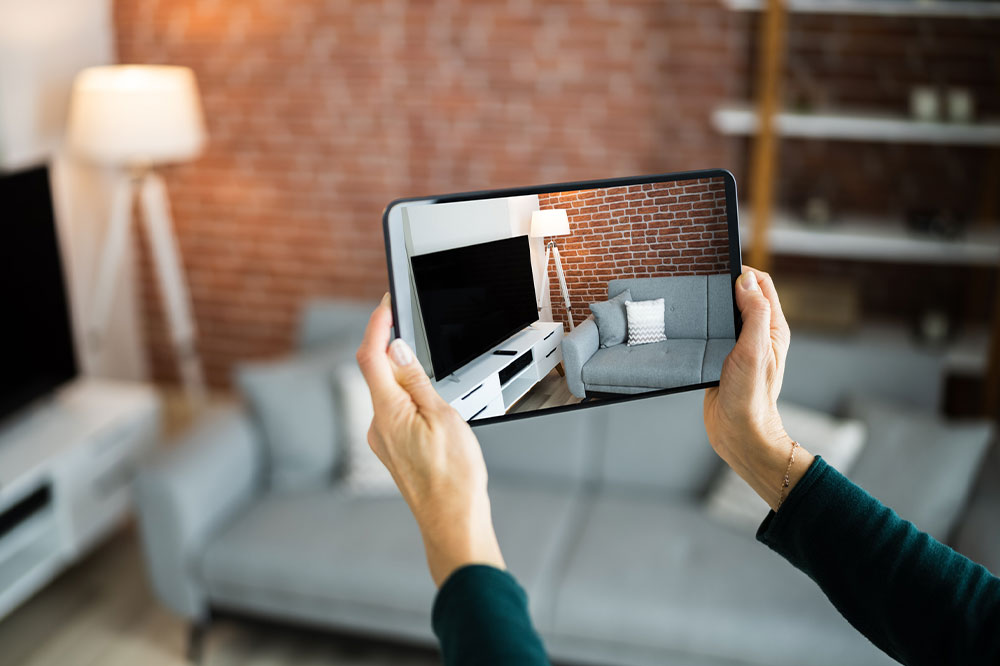Benefits of 3D Virtual House Tours
In the digital age, technology has revolutionized many industries, including real estate. Among the most beneficial advancements in the real estate field are 3D virtual house tours. A 3D virtual tour is an interactive digital model of a property that enables viewers to experience a realistic simulation of the space. Virtual tours allow potential buyers to view properties from the comfort of their own homes, saving time, money, and resources.
Why do home buyers need 3D virtual tours?
By using specialized software, the 3D virtual tour captures every property detail, including the layout, interior, and exterior features. The technology allows potential buyers to navigate through the virtual house tour as if they were physically present, giving them a sense of the space and ambiance of the property.

Here are some of the top benefits of the technology:
Convenience
One of the primary reasons buyers need 3D virtual house tours is convenience. Virtual tours allow buyers to view properties from the comfort of their homes or offices without traveling to the property. This is especially useful for buyers in different cities or countries who cannot physically visit the property.
Time-saving
3D virtual house tours are time-saving, allowing buyers to view multiple properties in a short amount of time. It is particularly useful for buyers with busy schedules who cannot take time off work or other commitments to visit properties in person.
Accessibility
Virtual tours provide access to properties that may not be available for physical tours. For example, some properties may be occupied by tenants or in a remote location, making it difficult for buyers to view them in person. 3D virtual tours allow buyers to view such properties without any physical constraints.
Better visualization
The tours let one visualize the property’s layout, size, and features. Virtual tours use high-quality graphics and advanced technology to create a realistic and immersive experience for the buyer. The buyer can thus understand the property’s layout and features, which may be difficult to visualize through traditional photos or word-of-mouth descriptions.
Not affected by any widespread occurrence or calamity
Due to social distancing restrictions and health concerns, the COVID-19 pandemic has made physical property visits difficult or impossible. 3D virtual house tours have become even more critical during the pandemic, allowing buyers to view properties without physical contact.
Enhanced viewing experience
With 3D virtual house tours, potential buyers can experience the property in a way that traditional photos or videos cannot capture. Virtual tours allow viewers to see the property from every angle, giving them a complete understanding of the layout and features of the property. The technology also allows viewers to zoom in and out of specific areas, providing a detailed look at the property’s unique features.
Increased buyer confidence
3D virtual house tours instill confidence in potential buyers by providing a more accurate representation of the property. With traditional photos or videos, buyers may be left with unanswered questions about the property’s layout, size, or unique features. Virtual tours provide a clear and detailed view of the property, giving buyers a better understanding of a potential investment.
Increased market reach
Virtual tours have the potential to reach a wider audience than traditional methods. With the ability to view properties anywhere, virtual tours can attract potential buyers from different cities, states, or countries. This can increase the property’s exposure to a wider audience, increasing the chances of a successful sale.
How do 3D virtual house tours work?
A specialized camera is used to capture high-quality images of the property as the first step of the 3D virtual house tour plan. The camera captures images of every property corner, including the interior, exterior, and unique features. These images are then stitched together to create a seamless, 360-degree virtual tour.
Once the images are captured and stitched together, they are uploaded to specialized software that allows potential buyers to navigate the virtual tour. Potential buyers can use their mouse or touchpad to virtually “move around” from room to room and zoom in on specific features.
Moreover, virtual tours can be customized to meet the needs of buyers and sellers. They can include music, voiceovers, or text descriptions of specific features of the property. They can also be embedded into websites or shared on social media platforms to increase the seller’s reach.
In conclusion
In conclusion, 3D virtual house tours have become an essential tool in the real estate industry, providing a convenient, cost-effective, and immersive way to view properties. They benefit not just the seller but the buyer too. It is still a pretty expensive venture and is just catching up in popularity across global markets. However, as technology advances, virtual tours will become even more accessible while remaining sophisticated, providing a more accurate and realistic representation of the property.

